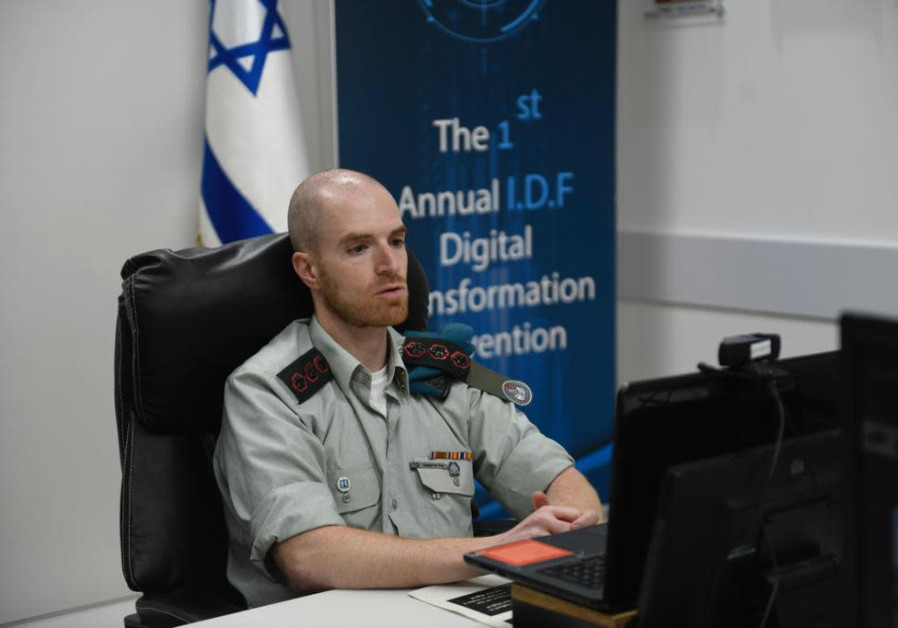The IDF held the first international military conference on digital transformation on Monday, with more than 100 participants from 30 countries taking part to learn about the knowledge gained by the Israeli military.
“This was the first time that such a conference took place,” said Col. Eli Birenbaum, head of the IDF Digital Transformation Division’s Architecture Department. The conference “was designed to share our knowledge with armies from around the world” and to discuss the future of a digital army, he said.
Among the countries that participated in the conference, which was held digitally, were Canada, the UK, Brazil, Mexico, Finland, the Netherlands, Colombia, the Philippines, the US, Greece, Cyprus, Romania, Austria, Croatia, Germany, Japan, Switzerland, Poland, South Korea, Spain, Italy and the Czech Republic.

“The number of countries that took part in the conference was surprising, and I think it shows that militaries around the world understand that the IDF is a leader in this,” Birenbaum told The Jerusalem Post following the conference.
During the conference, Brig.-Gen. Ziv Avtalion, head of the IDF Digital Transformation Administration’s C4I Branch, delivered a speech about the IDF’s digital transformation and the impact it has had on the military.
The IDF’s Digital Transformation Division was formed two years ago to take all the potential that is happening in the civilian world and bring it to the military. As part of the C4i and Cyber Defense Directorate, the division leads the military’s digital innovation programs to connect all divisions in the IDF and provide them with modern and fast infrastructure, Birenbaum said.
IDF Chief of Staff Lt.-Gen. Aviv Kohavi, he said, “has always talked about multidimensional aspects of future fighting – the cyber spectrum, ground forces, air force and navy altogether. It’s clear that they can’t be connected without digital.”
“In order to command an operation you need to be connected,” he added. “We don’t want to continue working as we did 20 years ago. I want the commander in the field to be able to mark a target and send it to the fire management system, where the most relevant party strikes the target.”
In 2014, the IDF understood that it had reached the limit of what it could share, Birenbaum said, adding that in the past it used to take dozens of minutes from when ground units spotted a target to when it would be approved and struck.
“Those dozens of minutes would make it so the target was no longer relevant; the fighting would have changed,” he said. “We understood that our digital architecture wasn’t good enough, [but now] “it takes mere seconds.”
That digital transformation and the use of the fire management system by the IDF was apparent during the last round of fighting with terrorist groups in the Gaza Strip.
“We got to the point where we were able to bring targets within seconds,” Birenbaum said. “You can only imagine the impact changing the architecture had on the fighting.”
